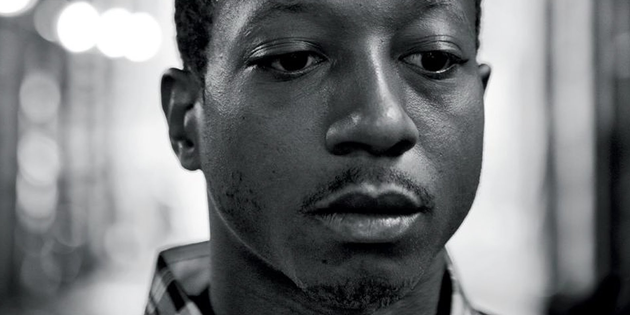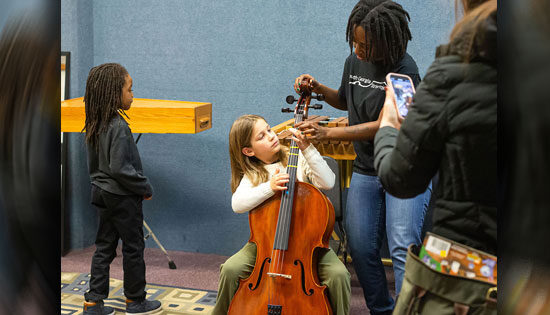Kalief Browder, and many like him, are victims of a “blind” justice system, in the truest possible sense.
Nick Rudnik, Valdosta Today Opinion Contributor
In 2010 Kalief Browder was a 16-year-old African American in New York. He was arrested for allegedly stealing a backpack, a claim he refutes, and subsequently spent the next three years of his life awaiting a court appearance on Rikers Island—New York City’s main jail complex. Browder was placed in solitary confinement and beaten by prison guards during his years spent at Rikers.
Recently, Rand Paul, Kentucky Senator and a 2016 Republican presidential candidate, championed the story of Browder as he spoke, as he has often in the past, on the need for criminal justice reform in the United States. The Browder controversy represents a “perfect storm,” typifying all that is wrong with the 21st century criminal justice system; a slow and unwieldy court system, harsh sentences for nonviolent offenders, American youth lost in an unending cycle of imprisonment and crime, and police and prison brutality, to only name a few.
After three years at Rikers, Kalief Browder was released without ever having been convicted of any crime. The charges were finally dropped. But the damage had already been done.
Browder was 19 years old at the end of his ordeal. He couldn’t return to high school so he began taking courses to complete his GED. It would certainly be an uphill battle to secure employment after an extended stay in prison and not even possessing a high school diploma. These concerns mounted in his adolescent mind. He became increasingly distraught and paranoid following his release, spending a week in a hospital psychiatric ward in 2014.
All of this is a direct consequence of Browder spending the waning years of his youth in prison for a crime he was adamant he didn’t even commit; to say he was emotionally scarred would be an understatement.
In June 2015, Kalief Browder committed suicide. He hanged himself, telling his mother he couldn’t take the suffering any longer. To Paul, among others, Browder represents the inherently unequal American criminal justice system. Browder’s story, while an anecdote, illustrates a greater trend in the way our nation polices the streets and prosecutes offenders. Like Paul, I thought a great deal of
Kalief Browder and how the New York penal system fundamentally failed him.
There’s no doubt our criminal justice system is bogged down and overloaded with defendants and convicted offenders. We should never excuse those who knowingly and willfully contravene the laws of the state. But we also cannot excuse a justice system that takes years to process and prosecute those awaiting trial. We cannot excuse a justice system that is different for young white men and young men of color. And, we cannot simply ignore or sidestep the issue of criminal justice reform any longer.
It’s quite easy to recognize where there’s a problem in our criminal justice system, as Paul and many others have in recent months. It’s quite a different question to ask the “why?” Why has our criminal justice system become increasingly inflexible, inefficient, and biased?
The many ills plaguing the criminal justice system are merely side effects of a much larger problem: American democracy in fundamental and continuing crisis. In 1975, political scientists Michel Crozier, Samuel Huntington, and Joji Watanuki penned a report for the Trilateral Commission that would later became a book entitled “The Crisis of Democracy.”
“Crisis” argues that the U.S., Europe, and Japan have become increasingly paralyzed by hyperpluralism. Particularly in the U.S., the political system has become contradictory and self-defeating, where the “impulse of democracy is to make government less powerful and more active, to increase its functions, and to decrease its authority.”
They argue that the modern, industrialized societies of the Global North have become crippled by greater participatory demands, but with the same participants less inclined to make substantial contributions to the system (e.g., through tax revenue or the like). Thus, democracy is marred in a deeply contradictory paradox.
The iniquities and evils that plague postmodern criminal justice, the same failures that plagued Kalief Browder, stem from this crisis in western democracy. The criminal justice system is overcrowded not only because of draconian laws leading to more and more offenders, but also because of substantial funding shortfalls.
As argued in “Crisis”, we want more from government for considerably less. If we then want to police our streets as vigorously as possible, there will inevitably more “Kalief Browders”—victims of a perilous, inefficient, torpid system. Continually asking a cash-strapped system to do more with invariably less will eventually cause the system to reach an incessant backlog.
The victims of our criminal justice system are simply victims of a system with “too much” democracy (i.e., hyperpluralism). Until we deal realistically with reforming our justice system—with penal, sentencing, and funding reform—we will unfortunately see the lives of more young men like Kalief Browder ruined before a truly blind justice system.
Or, perhaps, a truly blind democracy both unable and unwilling to recognize the crisis right before their eyes.
 Nicholas A. Rudnik is currently pursuing a degree in political science with a concentration in American politics at Valdosta State University. Previously, he’s served as a congressional page in the U.S. House of Representatives during the 111th Congress and in the Office of U.S. Congressman Sanford Bishop. Further, Nick has served on staff at an institutional interest group, the Association of American Law Schools, in Washington and has worked in the private sector. He has presented his research, focused primarily on congressional parties and elections, at regional academic conferences and hopes to pursue a graduate degree in political science. Nick is currently completing two manuscripts relating to southern congressional elections and judicial decision-making in the area of campaign finance; he can be contacted via e-mail at narudnik@valdosta.edu. Follow Nick on Twitter: @NickRudnik.
Nicholas A. Rudnik is currently pursuing a degree in political science with a concentration in American politics at Valdosta State University. Previously, he’s served as a congressional page in the U.S. House of Representatives during the 111th Congress and in the Office of U.S. Congressman Sanford Bishop. Further, Nick has served on staff at an institutional interest group, the Association of American Law Schools, in Washington and has worked in the private sector. He has presented his research, focused primarily on congressional parties and elections, at regional academic conferences and hopes to pursue a graduate degree in political science. Nick is currently completing two manuscripts relating to southern congressional elections and judicial decision-making in the area of campaign finance; he can be contacted via e-mail at narudnik@valdosta.edu. Follow Nick on Twitter: @NickRudnik.











